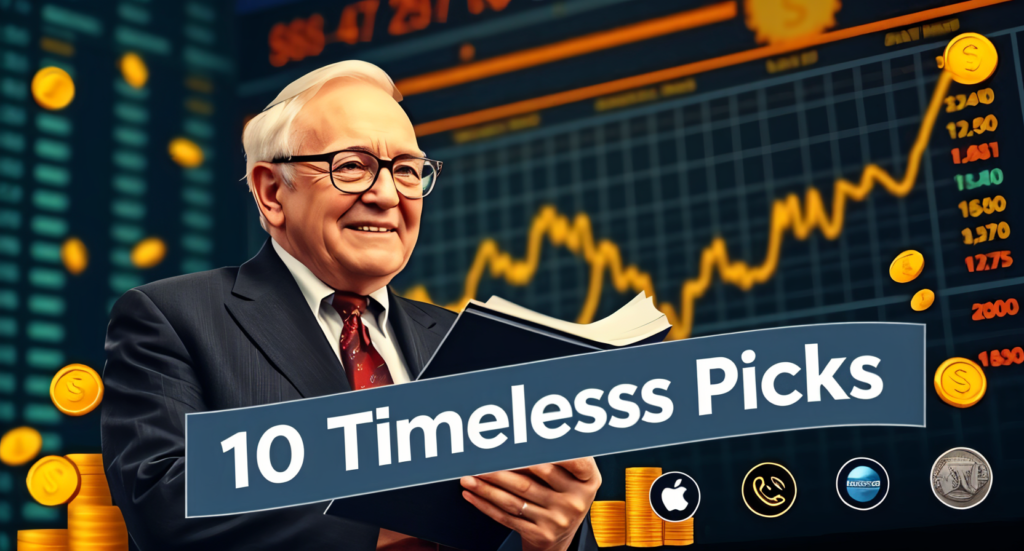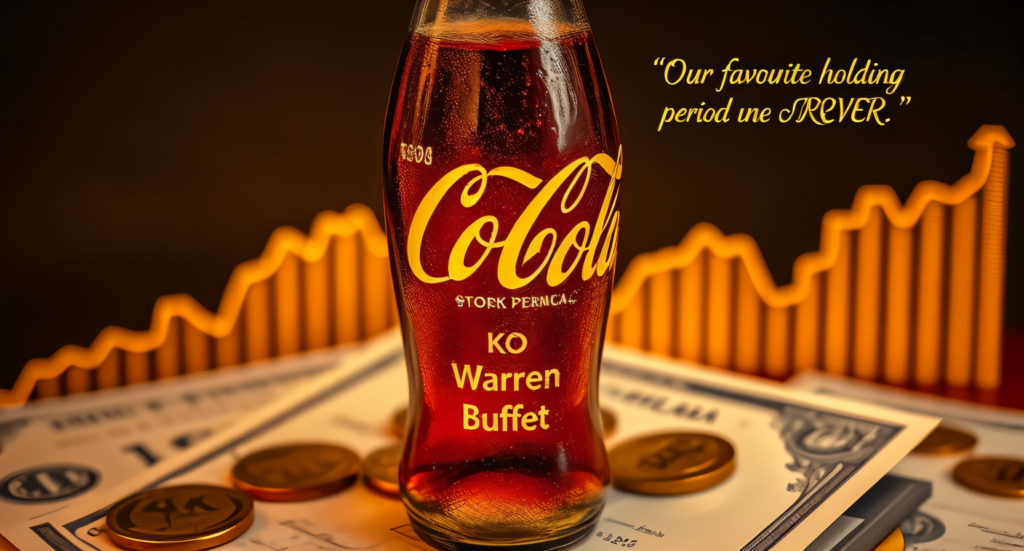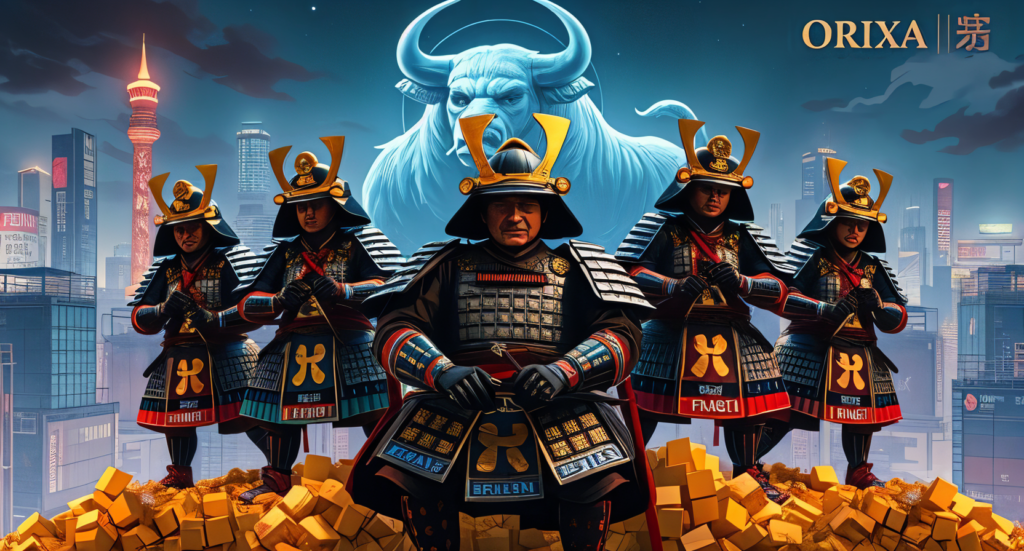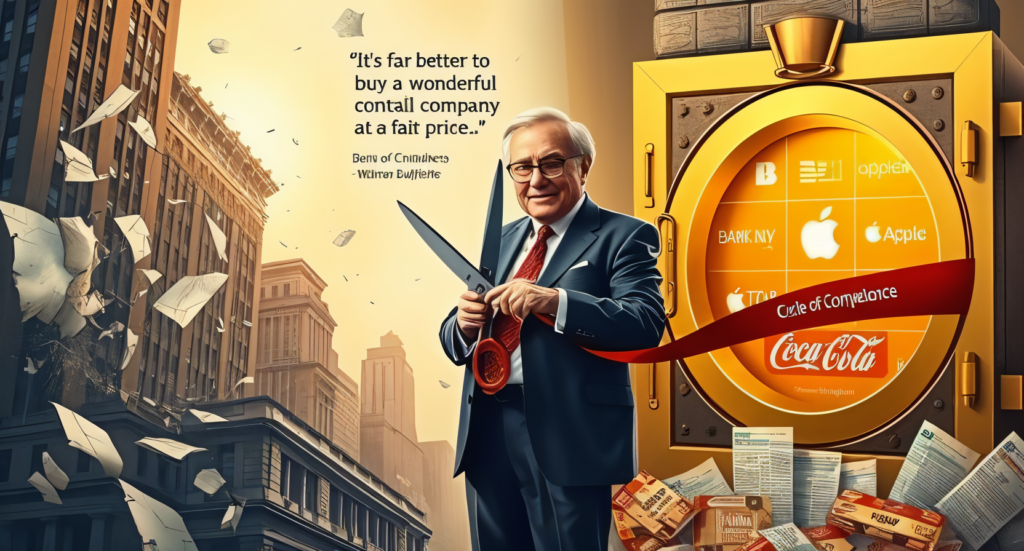
Warren Buffett Stocks: The Blueprint for Smart Investing
When it comes to building long-term wealth, few investors command as much respect as Warren Buffett. The “Oracle of Omaha” has turned Berkshire Hathaway into a $900 billion empire by sticking to a simple philosophy: buy great businesses at fair prices and hold them forever. Warren Buffett stocks aren’t just about quick gains—they’re about patience, discipline, and compounding returns over decades.
If you’ve ever wondered how Buffett picks winners, you’re in the right place. Below, we break down five of his most iconic Warren Buffett stocks—and why they still matter today.
1. Apple (AAPL): Buffett’s Favorite Tech Bet
Surprised? Many people are. Warren Buffett famously avoided tech stocks for years, calling them outside his “circle of competence.” But in 2016, Berkshire Hathaway took a 1billionpositioninApple—andtoday, it’s worthover 1billion position in Apple—and today, it’s wort hover 160 billion, making up nearly 50% of Berkshire’s portfolio.
Why did Buffett change his mind? Simple: Apple isn’t just a tech company—it’s a consumer brand with insane loyalty. iPhones, MacBooks, and services like Apple Music create a recurring revenue stream. Plus, Apple’s massive stock buybacks boost shareholder value.
Key Takeaway: Even skeptics can’t ignore Apple’s dominance. Among Warren Buffett stocks, this one proves adaptability wins.
2. Coca-Cola (KO): The Ultimate “Forever Stock”
Buffett didn’t just buy Coca-Cola—he made it a core holding for life. Berkshire owns 400 million shares (9.3% of the company), a stake worth over $25 billion.

Why? Predictability. People drink Coke in good times and bad. The company raises prices steadily, pays a reliable dividend (3% yield), and dominates global markets. Buffett once joked he drinks five Cokes a day—proof he believes in the product.
Key Takeaway: In a world of flashy trends, Warren Buffett stocks like KO remind us: boring can be beautiful.
3. Bank of America (BAC): Buffett’s Banking Powerhouse
Buffett loves banks—and Bank of America is his biggest bet. Berkshire owns 13% of BAC, a position worth $35 billion.
Why? Scale and efficiency. BAC has the second-largest deposits in the U.S., a low-cost structure, and benefits from rising interest rates. Even during the 2008 crisis, Buffett swooped in with a $5 billion lifeline, later converting it into a massive equity stake.
Key Takeaway: When Buffett backs a bank, pay attention. Among Warren Buffett stocks, BAC shows his knack for buying when others panic.
4. American Express (AXP): The Hidden Cash Cow
Buffett has held American Express since 1964—yes, you read that right. Berkshire owns 20% of AXP, worth $28 billion.
What’s the secret? High-spending customers. AmEx caters to affluent users who pay annual fees and rarely default. Unlike Visa or Mastercard, AmEx is both a payment network and a lender, earning fees + interest.
Key Takeaway: Some Warren Buffett stocks are quiet wealth-builders. AXP proves longevity pays.
5. Occidental Petroleum (OXY): Buffett’s Big Energy Play
In recent years, Buffett has loaded up on Occidental Petroleum, owning 28% of the company (worth $14 billion).

Why? Oil isn’t dead. OXY has low production costs, strong free cash flow, and Buffett secured preferred shares paying 8% dividends. He’s also betting on carbon capture tech—a hedge for the future.
Key Takeaway: Even in “unsexy” sectors, Warren Buffett stocks find value.
6. Kraft Heinz (KHC): The Lesson in Overpaying for Brands
Among Warren Buffett stocks, Kraft Heinz serves as both a success story and a cautionary tale. Berkshire partnered with 3G Capital in 2015 to merge Kraft and Heinz, creating a $100 billion packaged food giant. Initially, it looked brilliant—iconic brands like Heinz ketchup and Oscar Mayer bacon promised steady cash flow.
But by 2019, the stock collapsed 70% after massive write-downs. What went wrong?
- Over-optimism on cost-cutting: 3G’s aggressive slash-and-burn strategy hurt innovation.
- Changing consumer tastes: Shifts toward organic/healthy foods left legacy brands behind.
- Too much debt: The $30 billion merger deal loaded the company with obligations.
Buffett later admitted he “overpaid” for Kraft. Yet, he hasn’t sold. Why? Even today, Kraft Heinz generates $2+ billion in annual free cash flow and pays a 4.5% dividend. For patient investors, it’s a reminder: even Warren Buffett stocks can stumble—but quality assets often recover.
7. Moody’s (MCO): The Silent Money Machine
While everyone talks about Apple and Coca-Cola, Moody’s might be Buffett’s most underrated pick. Berkshire owns 13% of this credit rating agency, a stake worth $7 billion.
Why does Buffett love it?
- Oligopoly power: Moody’s and S&P control 80% of the ratings market.
- High margins: It costs little to analyze debt, yet fees are lucrative.
- Recurring revenue: Bonds get re-rated constantly, creating a subscription-like model.
During the 2008 crisis, Moody’s was criticized for its role in rating toxic mortgages. But Buffett held firm—and today, the stock is up 1,200% since Berkshire first bought it. Among Warren Buffett stocks, Moody’s proves boring businesses can be extraordinary wealth-builders.
8. The “Secret” Warren Buffett Stocks: Japanese Trading Houses
In 2020, Buffett made a surprise move: buying 5% stakes in Japan’s five largest trading houses (Itochu, Marubeni, Mitsubishi, Mitsui, and Sumitomo). These conglomerates deal in everything from energy to noodles—and they’re dirt cheap, trading at 4-6x earnings.

Buffett’s genius? He financed the $6 billion bet with ultra-low 0.5% yen bonds, hedging currency risk. As inflation rose, these stocks soared 50%+.
Key lessons:
- Global opportunities matter: Buffett looks beyond U.S. borders.
- Patient capital wins: These firms pay 5% dividends and buy back shares aggressively.
9. What Buffett Is Buying NOW (And Why It Matters)
In 2023-24, Berkshire made two big moves:
A. Chevron (CVX) – The Energy Bet
- Buffett bought $20+ billion worth as oil prices surged.
- Unlike OXY, Chevron is integrated (upstream + downstream), offering stability.
B. Occidental Petroleum (OXY) – Doubling Down
- Berkshire now owns 28%, hinting at a potential full takeover.
The message? Buffett sees energy as undervalued despite the green transition.
10. Stocks Buffett Sold – And What We Can Learn
Even the Oracle exits positions. Recent sales include:

- TSMC (2023): Bought $4 billion, sold within months. Why? Geopolitical Taiwan risks.
- Bank of New York (2022): Exited after 20+ years, likely seeing better opportunities elsewhere.
The Takeaway: Warren Buffett stocks aren’t forever—even he adjusts when facts change.
Final Word: How to Invest Like Buffett Today
- Focus on free cash flow (not just earnings).
- Buy when others are fearful (like banks in 2008).
- Hold forever… but not blindly (see Kraft Heinz).
Buffett’s portfolio isn’t perfect—but for those seeking generational wealth, these Warren Buffett stocks offer a masterclass in discipline.
What All Warren Buffett Stocks Have in Common
- Durable Competitive Advantages (aka “moats”)
- Strong Management (Buffett only backs leaders he trusts)
- Consistent Earnings (no boom-or-bust hype)
- Shareholder-Friendly Policies (dividends, buybacks)
Should You Copy Warren Buffett Stocks?
Pros:
✅ Proven track record
✅ Lower risk than speculative picks
✅ Built for long-term wealth
Cons:
❌ Some picks are expensive now (like Apple)
❌ Not all will outperform short-term
Verdict: Use Warren Buffett stocks as a foundation—then add your own research.
Final Thought: Buffett’s Wisdom in One Line
“It’s far better to buy a wonderful company at a fair price than a fair company at a wonderful price.”
That’s the essence of Warren Buffett stocks. Now, will you follow his lead?
